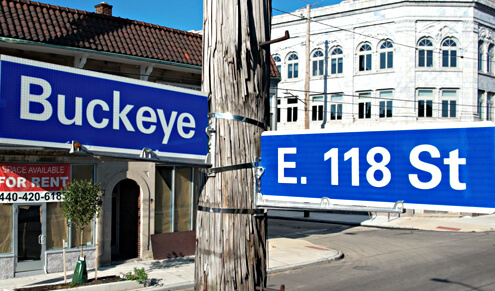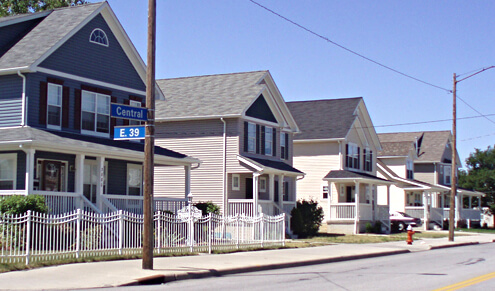Burten, Bell, Carr Development, Inc. has been empowering residents and revitalizing blighted and underserved communities in Cleveland’s Central and Kinsman neighborhoods since 1990. BBC has now extended its service area to include the Buckeye-Shaker Square and Buckeye-Woodhill neighborhoods.

BUCKEYE
The Buckeye neighborhood, comprising Buckeye-Shaker and Buckeye-Woodhill, had a significant Hungarian population in the late 19th century. As younger Hungarian-Americans left in the mid-20th century, African Americans moved in and formed a majority of the population. Housing issues due to redlining and block busting led to neighborhood stabilization efforts starting in the 1960s, including the creation of the Buckeye-Woodland Community Congress in 1974. In 1990, Burten, Bell, Carr Development, Inc. (BBC) was established to improve the neighborhood and connect residents with the city government, one of several such organizations in Cleveland.

CENTRAL/KINSMAN
Both the Central and Kinsman neighborhoods share similar histories dating back to the early 19th century. Central’s diversity attracted immigrants and African Americans before WWI, but later, Jewish and other ethnic residents left, and African Americans remained concentrated due to discrimination. From 1960 to 1970, desegregation on Cleveland’s East Side expanded housing options for African Americans, causing Central’s population to decline sharply. Kinsman also started in the early 19th century, attracted Jewish immigrants in the 1920s, but saw a decline after WWII. Both neighborhoods saw a decrease in population, leaving African Americans as the majority in both areas all the way into the 20th century. Many attribute this decline to the 1966 Hough Riots and other forms of discrimination and racism in the Kinsman and Central areas. In 1990, Burten, Bell, Carr Development (BBC), a community development corporation (CDC), was formed to serve the Central and Kinsman neighborhoods. By working to repurpose land, create public spaces, and spur new housing and business initiatives.



